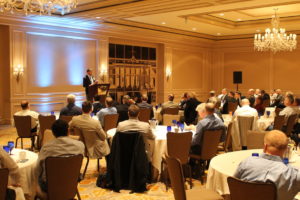2017 – Edition 3 – April 7, 2017
Table of Contents
Note: The order of material varies in hotline emails, but is always presented the same on this landing page. Readers scrolling through content on or printing this page will find it organized consistent with the table of contents.
President’s Report
ARSA Events
ARSA Works
ARSA on the Hill
Regulatory Outlook
Quality Time
Training
Membership
Resources
Industry Calendar
President’s Report
State of the Association
By Warner Calvo, ARSA’s 2017 President & Quality & Safety Director, Coopesa, R.L.
Editor’s Note: ARSA President Warner Calvo delivered his “state of the association” address during ARSA’s annual membership meeting and breakfast, held on March 17 during the 2017 Annual Repair Symposium. The following is the text of Mr. Calvo’s prepared remarks, annotated with links to resources and information about activities as described in the text:
Good morning, I’m Warner Calvo, ARSA’s 2017 president; I am also the quality and safety director at the Cooperativa Autogestionaria de Servicios Aeroindustriales R.L. … better known as COOPESA.
COOPESA is an employee-owned company with more than 50 years of experience in the aviation industry located in the beautiful country of Costa Rica. Founded in 1963, COOPESA’s core business is narrowbody aircraft. We have certificates from the FAA, EASA, Aruba, Bermuda, Brazil, Colombia, Mexico, Panama, Venezuela and others. COOPESA is proud to be celebrating more than 20 years as an ARSA member.
I’m very pleased to be leading ARSA’s Board at a time when the organization is strengthening its role as the global voice for aviation maintenance. ARSA’s work is critical. Aviation is borderless and political boundaries can’t restrain a free-flying aircraft. But the companies that support the flying community – maintenance providers especially – deal with boundaries and barriers to international business every day. ARSA works tirelessly to beat back burdens placed on repair stations – wherever they may be located – and we should all be proud of what the association does on our behalf.
The first item of business this morning is to introduce the board of directors. As you may or may not know, ARSA directors are chosen not only based on their professional credentials but also to represent a specific segment of the aviation maintenance industry. For example, as ARSA’s president, I represent international members.
I’m going to introduce each of our directors in turn and tell you what part of the industry they speak for. As I do, I’d like to ask each of them to stand and be recognized.
First, Basil Barimo from NORDAM and ARSA’s vice president. Basil represents corporate, business and airline maintenance providers on the Board.
Second, ARSA Treasurer Dave Latimer, from HAECO Americas, also represents international companies that work on large aircraft.
Gary Jordan of Jordan Propeller Service and Gary Hudnall from Jet Center MFR represent the general aviation segment of our membership.
Jim Perdue of Sonico represents component maintenance, which makes up the vast majority of ARSA’s membership. This segment is also represented by Gary Fortner of Fortner Engineering, who unfortunately is missing his first symposium in seventeen years due to the demands of a special project.
Chris Erickson from Erickson Aviation represents the rotorcraft industry.
And Ian Cheyne of BBA’s Dallas Airmotive, who also wasn’t able to be with us this week, represents engine maintenance providers.
This distinguished group represents the entire industry’s interests and ensures that ARSA’s strategy supports our collective needs. It is rewarding work and I’m thankful to be doing it with such dedicated colleagues. Thank you all for donating your valuable time to the association and thank you to your companies for supporting your ARSA service.
Can I please have a round of applause for ARSA’s volunteer leaders? Thank you. You may be seated.
I’m pleased to report that it’s been another busy – but very successful – year for ARSA and that the state of our association is strong.
This being our annual membership meeting, I’ll start by briefly talking about the progress we’ve made on the membership front in the past 12 months.
Through a concerted effort, ARSA gained more than 40 new members last year and revenue from membership increased by ten percent. Significantly, we’ve seen a dramatic increase in the number of corporate members, which underscores the value that ARSA is providing to both big and small companies alike.
To facilitate our continued membership growth, at ARSA’s Board meeting in October we adopted bylaw changes to simplify member categories and expand the pool of individuals eligible to independently join the association.
Under the newly-adopted bylaws, a regular member need only possess (or have applied for) a maintenance organization approval issued by a civil aviation authority. Applicants no longer need to demonstrate that a substantial portion of revenues are derived from maintenance activities. The revenue requirement was also removed from the affiliate membership category for entities that provide other products or services.
The educational membership category, which allowed students and faculty members to join ARSA, was expanded to include military service members. Anyone “employed by a branch of a nation’s military” may now apply under the new “Educational or Military Service Membership.”
We believe all these changes will help grow ARSA’s membership and that the last change I mentioned, in particular, will attract more students and military personnel to ARSA’s ranks so they come to understand the benefits of the association earlier in their careers, and hopefully carry that understanding with them to help us reach even more new members.
ARSA’s management team works diligently to maintain and expand our membership, but they need your help.
The first thing is make sure all your membership data is up to date and that everyone at your organization who should be receiving ARSA communications is. We want as many people as possible within our member companies to know about the good work ARSA is doing so there are no questions asked when the dues renewal bill arrives. Please see Kimberly Dimmick, ARSA’s client information manager, and make sure your company’s data is accurate.
Second, help us recruit new members. I’m sure everyone in this room can think of at least one company that isn’t an ARSA member that should be. If each of us commits to recruiting just one new member over the next year, ARSA will continue to grow even more powerful and be an even more effective advocate.
Which is a good segue to the topic of ARSA’s advocacy …
Working to improve the regulatory climate is at the heart of what ARSA does and in the past year we’ve chalked up some important victories.
Much of ARSA’s work since we were last together has focused on international issues and, in particular, smoothing the implementation of MAG Changes 5 and 6. Our efforts in this area underscore the critical role ARSA plays in resolving regulatory inconsistencies and helping regulators understand business realities.
As you no doubt recall, one of the major problems with the MAG change was that it required an FAA Form 8130-3 from the production approval holder to accompany all new parts installed by U.S. repair stations on articles that received a “dual release” for the EASA and FAA.
ARSA didn’t just press FAA and EASA to find a solution; the association took matters into its own hands and developed its own solution: Form E100.
ARSA Form E100 – which was released last September and is available exclusively to ARSA members, free of charge – allows repair stations to record an inspection of a new article received without the documentation required by the MAG. The FAA’s confirmation of the form’s acceptability guaranteed that the U.S. aviation maintenance industry would have another method available to comply with the recent MAG changes. When the association released the form last September, it grabbed so much attention that I’m told that week’s Dispatch newsletter was forwarded and shared enough to be opened by twice as many people as originally received it.
http://arsa.org/faa-accepts-arsa-form-e100-confirming-method-of-mag-compliance/
This is, of course, just one of the many examples of the depth and sophistication of ARSA’s work on international regulatory issues, and the value it brings to the maintenance community. Given Marshall’s appointment to represent ARSA on EASA’s Engineering and Maintenance Stakeholder Technical Committee – the E&M STeB – our influence and effectiveness on transatlantic regulatory issues will continue to grow.
While regulatory advocacy is an important part of what ARSA does for you, it’s by no means the only thing.
ARSA is also the industry’s voice on Capitol Hill. As we’ve seen in recent years, what happens in Congress impacts repair stations all around the world so work on the Hill is critical to health of our global industry.
With the start of the new Congress and new administration, ARSA has stepped up its lobbying efforts. The success of this year’s Legislative Day reflects the fact that repair stations are waking up to risks and opportunities in the new political environment, in particular the looming FAA reauthorization and increased hostility to international trade.
Christian has been busy on Capitol Hill, meeting with members of the House and Senate aviation subcommittees, committee staff and new members of Congress to educate them about our industry and head off potential problems. ARSA has released two separate studies so far this year to educate legislators, the executive branch and the media about the MRO sector. The economic report prepared by Oliver Wyman and released on Wednesday [March 15] and a report last month on EASA approval holders in the United States are both invaluable to our efforts at a time when international trade has become suspect in Washington.
All of this is about telling your story. It’s the tale of a high tech, globally-interconnected industry that employs more than 200,000 Americans and contributes more than $44 billion to the U.S. economy. It’s an industry in which small businesses are benefiting from international trade. It’s an industry that operates under a complex and sometimes crushing web of regulations. And it’s an industry that is working hard to recruit the next generation of technicians.
Now that a new Congress and new administration are in place, the association is ready to stake out territory on all the issues that affect our members.
As the FAA reauthorization bill takes shape, ARSA will be vigilant against new mandates designed to undermine competitiveness and drive up costs on repair stations, wherever they may be. And we will fight to protect and expand the network of bilateral aviation safety agreements that have helped make regulatory compliance and oversight more efficient, even while we work to make the agreements themselves better and more reciprocal.
As the tax debate proceeds, we will be vigilant against tariffs that would undermine free trade in aviation maintenance services and look for ways to simplify and improve the tax code for business.
As Perkins Act reauthorization proceeds, we will seize every opportunity to improve career technical education and build our workforce.
And as regulatory reform legislation makes its way through Congress, we will work to improve rulemaking, oversight and government/industry cooperation.
But keep in mind that sometimes ARSA’s effectiveness and track record masks the association’s limit resources. There are 535 members of the House and Senate plus countless committee and leadership offices. If our industry is going to prevail on the issues that affect the ability to work and succeed, your involvement is critical. We need your help to expand our scope and reach.
When ARSA asks you to get engaged, please respond. Maintain contact with your congressional offices and invite elected officials to visit your facilities (ARSA’s staff is standing by to help). And, although I can’t tell you to support ARSA PAC, I urge you learn more about it and why it’s so important to our legislative program.
Of course, ARSA does more than advocacy.
Over the past two years, the association has invested heavily in developing its online training program. Brett has quarterbacked that effort and is slowly but surely turning ARSA into an online training powerhouse. Marshall, Sarah and Christian have been holding weekly one-hour training sessions for more than a year. We now have a library of more than 50 classes available “on demand” covering a wide range of topics including drug and alcohol testing, surviving audits, regulations relating to aircraft parts, part 145, part 43, part 21…I could go on and on.
Our training program was designed with you and your employees in mind. Take advantage of this excellent resource to improve compliance and efficiency. And remember that the money you spend on training is reinvested back in ARSA to help grow all of its programs.
To help members reduce their costs of doing business, ARSA also maintains a network of preferred providers of services our members use and need. You heard yesterday that we have just inked a new deal with PartnerShip for reduced rates on shipping services. I urge to take advantage of this new relationship, review the list all our partners on the ARSA website and avail yourself of the reduced cost services they provide.
We’re also constantly on the lookout for new potential preferred providers. If there’s a company you love doing business with that’s providing an essential service to repair stations that you think ARSA should consider, please let Christian or Brett know.
I also want to take a moment to recognize this year’s symposium sponsors, who stepped up like never before to help make this meeting an extraordinary success. Thank you! We can’t do it without you.
Before I close, I want to remind you about ARSA’s member survey. The first invitation email was sent last month to every primary contact at every member organization. [Editor’s note: The survey is now closed, thank you to all who submitted responses.]
If you haven’t completed the survey or don’t know who at your company received the invitation, work with ARSA’s staff to find out and make sure your company responds. The survey data is critical to our advocacy and helps ensure we’re serving you as best we can. The team has already been using preliminary data to highlight who we are and what matters most to our businesses; let’s give them the best-possible snapshot of our industry.
In conclusion, thank you all for making this year’s symposium so successful. I look forward to seeing you at next year’s meeting, so please mark your calendars for March 14, 15 and 16 of 2018.
While you’re thinking of dates, there’s another you need to save: October 18 and 19, 2017, when ARSA’s Strategic Leadership Conference will take place in Washington, D.C. The SLC will be an intense series of high-level roundtable discussions with MRO leaders and focus on engagement with new faces in the executive branch. It’s an excellent opportunity to come together with other executives and guide the future of this international industry. Space is limited, so be prepared to register early.
I thank the ARSA staff – including the ones I haven’t mentioned: Caroline, Jennifer, Ryan and intern Zack – for their hard work on our behalf. It is truly a special organization, one dedicated to the health and growth of our industry, and I am proud to be involved.
[Time for open discussion with attendees.]
I hereby adjourn the 2017 annual membership meeting.
ARSA Events
Symposium 2017 – See What Happened
Thanks to all the participants, speakers, sponsors and allies who made ARSA’s 2017 Legislative Day & Annual Repair Symposium possible. See what happened when the maintenance community descended on the nation’s capital.
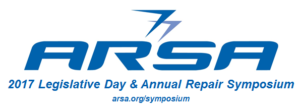
Friday, March 17 @ 12:01 p.m. EDT
The final curtain has officially fallen (metaphorically). ARSA is grateful to everyone who made this year’s event possible, persevering through unusually wintry weather to bring the voice of the maintenance community to the nation’s capital. As we close down at the Ritz-Carlton, a final, special thanks to the 2017 sponsors (to learn more about any of them, click the relevant logo):
2017 Platinum Sponsor
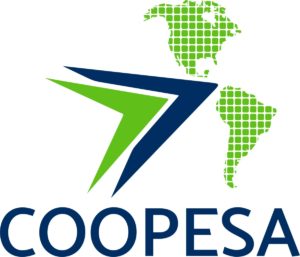 |
2017 Gold Sponsors
2017 Silver Sponsors
2017 Supporters
Friday, March 17 @ 11:04 a.m. EDT
As a great event comes to a close, mark your calendar for the next one:
…and for next year (click here to download next year’s symposium to your Outlook calendar).
Friday, March 17 @ 10:06 a.m. EDT
As its members sat down for ARSA’s Annual Meeting, the association honored Ms. Peggy Gilligan:
Thursday, March 16 @ 9:49 a.m. EDT
New ARSA member benefit announced. Welcome to PartnerShip:
Wednesday, March 15 @ 5:03 p.m. EDT
Legislative Day attendees got to spend some time with the unstoppable Rep.Virginia Foxx (N.C.) and honored her commitment to career technical education:
http://arsa.org/technical-workforce-development/
Wednesday, March 15 @ 1:35 p.m. EDT
Capitol Hill briefing complete. See what was presented:
ARSA Report Shows North America Powers $100 Billion Global Industry
Wednesday, March 15 @ 9:22 a.m. EDT
Attendees are on their way to Capitol Hill. As they breeze through D.C. traffic, take a moment to see what they’ll be talking about:
Tuesday, March 14 @ 10:14 a.m. EDT
The weather is already beginning to clear in the Washington, D.C. area. ARSA’s team is digging out and will be ready for tomorrow’s Legislative Day.
Should travel disruptions prevent a registrant from joining us, that individual should identify and provide us with a substitute since we do not offer refunds after March 1. If no colleague is able to make the trip or attend, registrants still can access all materials and follow up with the ARSA team should they need more insight.
Wherever you are, stay tuned for alerts and updates.
Monday, March 13 @ 9:10 a.m. EDT
The National Weather Service has issued a Winter Storm Warning for the Washington, D.C. area from March 13 at 7:00 p.m. to March 14 at 2:00 p.m. Forecasts vary depending on location, but the some mix of snow, sleet and rain is expected across the region. This warning is part of a larger weather system moving through the midwest and northeast United States.
ARSA’s Legislative Day & Annual Repair Symposium will continue as scheduled regardless of weather conditions. While Tuesday’s weather will be problematic, the system will clear in time for the area to get back to work on Wednesday and Thursday.
Registrants should take appropriate action regarding their personal travel and stay tuned to this page for event updates.
The Live Feed…
SLC 2017 – Save the Date
The Strategic Leadership Conference (SLC) provides industry leaders from around the world an informal setting to discuss important issues facing aviation maintenance. Federal agencies, elected leaders, customer representatives and industry partners are invited to share ideas, objectives and solutions to common issues.
The 2017 SLC will be held Oct. 18-19, 2017 at the Hamilton Crowne Plaza in Washington, D.C. Stay tuned for more information, including registration and sponsorship. Click here to download an Outlook calendar appointment and make sure you’ll be available.
Click here to visit the main event page (then bookmark it).
ARSA Works
Symposium 2017: Positive Trade Balance, Growth Prospects for Global Maintenance
Aviation maintenance, an often overlooked but vital segment of the aviation industry, is not only a major employer nationwide making a substantial impact on the U.S. economy; it has achieved a positive balance of trade, a new report finds.
According to the 2017 Global Fleet & MRO Market Assessment, prepared by consulting firm Oliver Wyman for ARSA, the U.S. civil aviation maintenance industry employs more than 277,000 people across the United States and generates $44.1 billion in annual economic activity.
The report found there are more than 3,800 American firms across all 50 states performing maintenance services. Contrary to popular perceptions about the industry, most aviation maintenance work is done “off the aircraft” by highly specialized FAA-certificated facilities working on engines and components. The vast majority of these repair stations, close to 85 percent, are small-to-medium sized businesses employing 50 or fewer people. Overall, thanks to strong performance in component and engine-specific services, the United States enjoys a positive balance of trade for maintenance: American maintenance exports exceed imports by almost $850 million.
The report was released March 15 at a Capitol Hill briefing conducted as a part of ARSA’s annual Legislative Day, an event that has become a highlight of the transportation policy community’s spring calendar. David Marcontell, Oliver Wyman vice president, presented this year’s report.
The total worldwide market for commercial aviation maintenance in 2017 is expected to reach nearly $75.6 billion, Oliver Wyman found. By 2027, global sales will expand to more than $109 billion, based on the firm’s projections. Maintenance providers will see steady demand growth, as fleets expand and new technologies emerge, Marcontell noted during the briefing.
As a further enhancement to this year’s report, the 2017 assessment includes an economic sensitivity analysis that tests the $109 billion projection against four alternative economic scenarios. Ranging from “cloud nine” robust growth to “black swan” disaster, the maintenance market fares relatively well against each variation. In fact, in three of the four situations considered, the market actually outperforms Oliver Wyman’s baseline economic projection. Even when bearish assumptions are made for a “weakened economy,” airline dependence on legacy aircraft would still bolster maintenance, repair and overhaul spend to $111 billion by 2027.
“Basically everything would have to go economically haywire in the global market for maintenance spend to not at least meet projections,” Marcontell said about the analysis. “Even then, the numbers are still in the ballpark of $100 billion in 10 years’ time; in terms of dollars and cents, this is a very durable industry.”
“The most important takeway from this report for members of Congress is that you may not know it, but the aviation maintenance industry plays an important part in your state’s economy,” ARSA Executive Vice President Christian A. Klein said. “So, whether you’re reauthorizing the FAA, refining the tax code, changing trade policy or overhauling the regulatory system, lawmakers need to consider the impact on repair stations and their employees.”
Highlighting the hundreds of thousands of American workers involved in avatiion maintenance, Klein concluded: “We say it a lot, but it bears repeating: We can’t fly without them.”
The report’s executive summary, as well as a fact sheet illustrating U.S. state-by-state employment figures, can be found in ARSA’s economic data center at arsa.org/news-media/economic-data.
To see what else happened during the event, visit arsa.org/symposium.
ARSA, Industry Partners Get 90 Additional Days to Comment on Form 8130 AC
On Feb. 27, an ARSA-led coalition of industry partners asked the FAA to extend the comment period on Draft Advisory Circular 43-ARTS, “Use of FAA Form 8130-3 for Approval to Return to Service Under Part 43.” The agency summarily accepted the request, providing an additional 90 days; comments are now due on June 12.
The group’s 15 signatories from both trade associations and private aviation companies sought the additional time to carefully reconsider the AC as proposed by the agency:
“Draft [AC] 43-ARTS significantly revises the agency’s interpretation of the requirements for using FAA Form 8130-3 for approving articles for return to service,” the request said. “Because the draft AC does not mirror the maintenance recordkeeping regulations and conflicts with existing agency policy, additional time is required for industry to develop comprehensive substantive comments.”
To read the complete request, click here.
Stay tuned to ARSA for updates as the association and its allies prepare industry comments for submission. To see all of the ways ARSA serves as voice of the aviation maintenance industry, visit the ARSA Works page.
ARSA on the Hill
Aviation Takes Center Stage in Washington, D.C.
By Christian A. Klein, Executive Vice President
March was a busy month both for ARSA and the aviation policy community in the nation’s capital.
The House aviation subcommittee held two hearings. The first, on March 1, focused on America’s airport infrastructure; the second on March 8 focused more generally on the health of the nation’s aviation sector. ARSA submitted written testimony in conjunction with March 8 hearing highlighting repair stations’ significant contributions to aviation safety and the economy and emphasizing ARSA’s legislative priorities for the current Congress.
The Senate’s aviation operations, safety and security subcommittee held its first FAA reauthorization-related hearing of the year on March 23. Representatives from government and industry focused on airport infrastructure and aviation manufacturing issues. The Senate hearing and March 1 House hearing marked the last at which FAA Associate Administrator for Aviation Safety Peggy Gilligan will testify. Lawmakers from both parties lauded Gilligan, who retired from the FAA on March 31, for her leadership and long career in the cause of aviation safety.
The U.S. Chamber of Commerce’s 2017 Aviation Summit, which took place in Washington, D.C. on March 2, also helped spotlight the aviation sector. The list of speakers presented luminaries from government and industry, including FAA Administrator Michael Huerta and CEOs from leading airlines and manufacturers. Among them was Eric Mendelson, co-president of HEICO Corporation, who participated in a panel discussion with the presidents of Pratt & Whitney, Embraer, and others about aerospace manufacturing issues.
Aviation maintenance took center stage on Capitol Hill on March 15, when more than 50 repair station industry leaders converged on Congress for ARSA’s annual Legislative Day. The aviation maintenance industry’s premiere public policy event, Legislative Day takes place each March the day before the ARSA Symposium.
This year’s Legislative Day kicked off with remarks from ARSA Government Affairs Chairman Josh Krotec (First Aviation) who shared insights from his own experiences engaging lawmakers on maintenance-related issues. “Over the past several years, I’ve personally gotten involved in working with Congress,” Krotec said. “At first, I had trepidations, but as I started engaging with the congressional offices where our company has facilities, I quickly learned that members of Congress want to hear from us, they want to help us solve problems and the will be responsive if you can help them understand the issues that matter to you.”
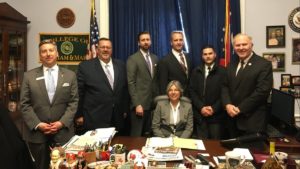
ARSA staff and members meet with House Small Business Committee Chairman Steve Chabot (R-Ohio) (far right) to discuss regulatory reform, the technical worker shortage, the important role small businesses play in the aviation maintenance industry.
After Krotec’s remarks and an in-depth briefing by ARSA staff on hot aviation policy issues – including FAA reauthorization, regulatory reform and workforce development legislation – the group headed to Capitol Hill for meetings with lawmakers and congressional staff. In addition to dozens of meetings with home state congressional offices scheduled by Legislative Day attendees, the event includes numerous high-level meetings organized by ARSA, including a session with the staff of the House aviation subcommittee and meeting for Ohio members with House Small Business Committee Chairman Steve Chabot (R-Ohio).
Other highlights of the day included a lunch briefing by Dave Marcontell, vice president of consulting firm Oliver Wyman, on the results of the 2017 Global Fleet & MRO Market Assessment. Among other things, the study found that the U.S. civil aviation maintenance industry employs more than 277,000 people and generates $44.1 billion in annual economic activity. ARSA uses the data from the report, which includes a state-by-state breakdown of maintenance industry’s employment and economic impact, to help educate lawmakers and others about our industry’s contributions to the economy.
Another highlight of this year’s Legislative Day was a special session with House Education & Workforce Committee Chairwoman Virginia Foxx (R-
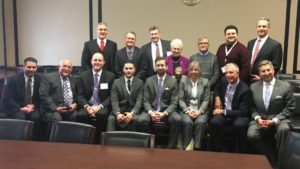
ARSA Legislative Day attendees meeting with House Education & Workforce Committee Chairwoman Virginia Foxx (R-N.C.) (center, in purple jacket) to present the association’s 2017 Legislative Leadership Award.
N.C.) to discuss the aviation maintenance industry’s skilled technical worker shortage. Chairwoman Foxx, a former community college president, briefed ARSA members on her plans to pass legislation this year to reauthorize federal career technical education programs. As part of the meeting, which took place in the committee’s hearing room, ARSA presented Foxx with the association’s 2017 legislative leadership award in recognition of outstanding work to address America’s skills crisis.
Heralded by many as the most successful ARSA Legislative Day in years (both in number of Hill meetings and quality of contacts), the event has helped to further build ARSA’s visibility among lawmakers and congressional staff as the industry confronts a host of political risks. The association thanks all members who invested their time to go to educate policymakers about our industry and discuss how legislation Congress enacts impacts repair stations in communities around the country.
But the hard work isn’t over! In the days since Legislative Day, ARSA has following up with staffers and members of Congress with whom our members met and continues to build the relationship between Congress, the association and our member companies throughout the country.
Whether or not you attended Legislative Day, we invite you to work with us to strengthen those ties. Send a note to me at christian.klein@arsa.org to learn about how to get more involved.

Symposium 2017: Industry Recognizes Foxx for Technical Education Leadership
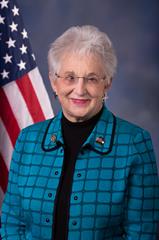
Rep. Virginia Foxx – Image Credit: foxx.house.gov
Aviation maintenance industry executives gathered on Capitol Hill March 15 to honor House Education & Workforce Committee Chairman Virginia Foxx (R-N.C.) with ARSA’s 2017 Legislative Leadership Award.
During more than a decade in Congress, former community college president Foxx has established herself as champion for career technical education (CTE). She was a leading force behind efforts to modernize and reform the nation’s workforce development system through the 2014 Workforce Innovation and Opportunity Act (WIOA) and has continued to work to improve CTE through Perkins Act reauthorization.
Aviation maintenance companies have consistently identified the skilled worker shortage as a major strategic threat to the industry. Fifty-six percent of respondents to ARSA’s 2017 member survey said they plan to add positions in the coming year, but industry leaders are concerned that a shortage of qualified applicants my restrict MRO sector growth. Eighty percent of ARSA survey respondents reported having difficulty finding workers to fill technical positions over the past two years and half reported their companies had open, unfilled technical jobs.
“Maintenance providers throughout the country owe Chairwoman Foxx a debt of gratitude for her tireless efforts to improve CTE,” ARSA Executive Vice President Christian A. Klein said. “ARSA looks forward to continuing to work with her in the 115th Congress to shed light on the nation’s skills crisis and work towards solving it.”
The award was presented during ARSA’s Legislative Day, which is held each March in conjunction with the association’s Annual Repair Symposium. To see what else happened during the event, visit ARSA.org/symposium.
At Senate Hearing, GAO’s Dillingham Reviews FAA Certification & Consistency Initiatives
At a March 23 hearing of the Senate Commerce, Science and Transportation Committee, Dr. Gerald Dillingham, director of physical infrastructure issues for the Government Accountability Office (GAO), reported on the FAA’s progress towards certification process reform and improvements to consistency in rulemaking interpretation.
Dillingham, who was the luncheon speaker at ARSA’s 2017 Annual Repair Symposium, testified before the committee’s hearing “FAA Reauthorization: Perspectives on Improving Airport Infrastructure and Aviation Manufacturing.” His testimony included ARSA among its resources for assessing the agency’s performance and described a variety of committees and initiatives with which the association has participated. He reported the FAA has completed 13 of 14 certification initiatives and two of six regulatory consistency recommendations, including creation of the Regulatory Consistency Communication Board.
Dillingham also updated the committee on the progress of the AIR Transformation initiative, which ARSA actively supports: “FAA officials told us they had been engaging with industry…on AIR Transformation and a potential reorganization of AIR,” Dillingham’s written testimony said. “FAA officials also noted that the new organizational structure is changing the reporting hierarchy, and allowing AIR to provide more consistent responses to companies during the certification process. In addition, they said companies would maintain the same points of contact for undergoing certification of their aviation products.”
While he was generally positive about the agency’s performance, Dillingham did note – based on industry feedback gathered by GAO – that he was reporting the completion of tasks and recommendations. It remains to be seen how those headquarters-level actions will translate into continuing improvement for certificate holders.
ARSA has played a key role in the FAA’s certification and consistency improvement efforts, including participation on the Consistency in Rulemaking Interpretation Aviation Rulemaking Committee (CRI ARC). The association will continue to work with the agency, and press it when necessary, to improve its mechanisms for overseeing the maintenance and manufacturing communities.
Peggy Gilligan, then the soon-to-retire FAA associate administrator for aviation safety and recipient of the 2017 Weston Award, also testified at the hearing. Dillingham and Gilligan were joined by witnesses from ARSA-member Southwest Airlines, St. Louis Lambert International Airport and Sabreliner Aviation.
To see more of what happened during the hearing, visit: http://www.commerce.senate.gov/public/index.cfm/2017/3/faa-reauthorization-perspectives-on-improving-airport-infrastructure-and-aviation-manufacturing.
Aviation Maintenance Industry is Healthy, ARSA Tells Congress, But Threats Loom
Aviation maintenance industry companies are generally optimistic about the economic outlook for 2017, but wary of the risk of new regulatory burdens and confronting a chronic shortage of skilled technical workers. That message was delivered by ARSA to members of the House Transportation & Infrastructure Committee in a statement for the record of a March 8 aviation subcommittee hearing.
ARSA told committee members the industry has a massive economic footprint in the United States, employing more than 277,000 people who generate $44 billion in annual economic activity.
Repair stations are generally optimistic about the health of their industry and prospects for 2017, ARSA Executive Vice President Christian Klein said in the statement. Fifty-eight percent of the respondents to ARSA’s 2017 member survey said they expect their revenues and markets to grow in the coming year; fewer than seven percent expected contraction.
Klein also told committee members that government intrusion through overregulation is perceived by maintenance providers as a major threat to the industry. ARSA urged lawmakers to carefully consider whether proposals that impose new regulations or mandates improve safety and whether the additional regulatory burden makes sense considering the totality of existing requirements.
The ARSA statement also highlight the ways in which workers and companies in almost every state benefit from international trade in aviation maintenance services. More than 1,400 U.S. facilities are approved to work on European-registered aircraft and related components. ARSA survey respondents indicated that, on average, a quarter of company revenues is derived from work done under a bilateral aviation safety agreement (BASA).
ARSA told the committee that repair stations consider the technical talent shortage to be the biggest challenge confronting the industry. Thirty-one percent of ARSA survey respondents reported having “a lot of difficultly” finding qualified workers to fill technical positions over the past two years; half of respondents reported having “some difficulty” and fewer than one-fifth said they had no difficulty. Half of ARSA survey respondents reported having open, unfilled technical positions.
Finally, ARSA highlighted the need to invest in America’s airports, saying that Congress must look for fiscally-responsible ways to expand America’s airport capacity to improve passenger mobility, enhance system efficiency and ensure the continued growth and health of the aviation industry.
To read the entire statement, visit: arsa.org/wp-content/uploads/2017/03/ARSA-AviationSubComHearingStatement-20170308.pdf.

Regulatory Outlook
Symposium 2017: ARSA Honors Gilligan’s Public Service with Weston Award

Peggy Gilligan – Image Credit: FAA
On March 17, ARSA announced that Peggy Gilligan, the FAA’s since-retired associate administrator for aviation safety, is the recipient of the association’s 2017 Leo Weston Award.
Over her decades long career with the FAA, Gilligan rose from an attorney in the Eastern Regional Counsel’s office, served as chief of staff for four different administrators and finally spent 20 years in the Aviation Safety organization. She became associate administrator in January, 2009, assuming responsibility for setting, overseeing and enforcing safety standards for the aviation industry.
“She has always been an honest, forthright broker unstintingly serving her country and the flying public through shifting political crosswinds,” ARSA Executive Director Sarah MacLeod said when Gilligan announced her plans to retire this past January. “She earned the respect of the international aviation community and certainly has mine.”
MacLeod and ARSA demonstrated that respect through its Weston Award, which was first bestowed in 2005 on Weston himself. The award recognizes individuals who embody commitment to the aviation maintenance industry’s safety and success.
“Whether she recognized it or not, Peggy has been a mentor for me. I have long admired her steady guidance of the agency. Without her hand on the yoke, the politics of aviation safety would have grounded the industry. Instead, she has allowed us to design systems that can withstand political turbulence,” MacLeod said.
The announcement was made during ARSA’s annual member meeting on the last day of its 2017 Legislative Day & Annual Repair Symposium. Although Gilligan could not join the association during the symposium, it will be presenting her the Weston Award during a scheduled retirement event.
To see what else happened during the event, visit arsa.org/symposium.
International Spec for Technical Pubs Modernizes CMM Terminology
The S1000D, “International specification for technical publications using a common source database,” has added new language to supplement the term “component maintenance manual.” The specification now offers “component maintenance publication” for new documents, though the use of “manual” might still be appropriate in certain situations.
S1000D is used as a standard by both defense and civil aviation programs in Europe, North and South America and Asia. It originated in the early 1980’s when European industry representatives built on ATA 100 – then the only internationally accepted aerospace specification – to construct a unified method of “air vehicle” project documentation. The specification is controlled by the Aerospace and Defence Industries Association of Europe (ASD), the Aerospace Industries Association (AIA) and the ATA e-Business Program; it is maintained by its users – customers, suppliers and aviation industry service providers.
According to the electronic data standards team that manages the ATA e-Business Program, the shift away from “CMM” will help align S1000D’s terminology with its digital focus. It allows users flexibility to avoid the paper-based connotation of “manual” in situations where “publication” more-accurately describes the utilized documentation.
Users of the S1000D should be prepared to manage the transition in terminology, particularly while maintaining publications both for legacy and new aviation products. To learn more, visit: public.s1000d.org.
ATA e-Business Forum
Aviation businesses that are particularly interested in e-business program specifications should consider attending the joint ATA e-Business Forum/S1000D User Forum from June 12-14 in Amsterdam. Attendees will have the opportunity to learn about the specifications, meet many  of the industry leaders responsible for developing and maintaining the specifications and see products and services to enable implementation of the standards. For more information and to register, visit: www.ataebiz.org/Pages/events.
of the industry leaders responsible for developing and maintaining the specifications and see products and services to enable implementation of the standards. For more information and to register, visit: www.ataebiz.org/Pages/events.
White House Education & Workforce Policy Outlook: Heavy Praise, Skinny Budget
President Trump’s administration is taking ideological shape in Washington. Even as hundreds of presidentially-appointed positions remain unfilled and the signature legislative effort to repeal and replace Obamacare fell flat in Congress, the White House has generally outlined key policy initiatives including regulatory reform and military investment.
Restoring and protecting American jobs was a central tenet of the president’s 2016 campaign and workforce issues have remained at least in sight during the early days of the administration. During his well-reported meeting with German Chancellor Angela Merkel, Trump described skills training as “very important.” Opening a roundtable discussion with Merkel and a group of American and German business leaders, Trump specifically highlighted apprenticeships: “Companies across the [United States] have a chance to develop vocational training programs that will meet their growing needs and to help us achieve greater prosperity,” the president said. “The German apprenticeship model is one of the proven programs to developing a highly skilled workforce…And we need that because we’re training people as the jobs are pouring back in.”
The relationship between job growth, performance and education is clear. Considering the White House’s infrastructure goals – generating up to $1 trillion in funding through a mix of public and private investment – ARSA and its industry allies have highlighted the need for well-trained technicians and specialists to perform the actual work needed on roads, bridges, airports and other transportation facilities. In addition to apprenticeships, members of the president’s cabinet have underscored the value of industry sector partnerships, aligning curriculum with employer demand and bolstering job training programs.
The White House website’s issue page on jobs uses workforce growth as the unifying thread connecting the administration’s other policy goals, specifically tax reform, and relates it to Trump’s well-publicized business acumen: “As a lifelong job-creator and businessman, the president also knows how important it is to get Washington out of the way of America’s small businesses, entrepreneurs and workers.”
All of these initiatives, as general expressions of policy, are consistent with industry demands for better skills-based training. Last September’s House-passed “Strengthening Career and Technical Education for the 21st Century Act” (H.R. 5587) would have codified many of these requirements. Unfortunately, that bill to modernize and reform the federal government’s primary vehicle for investment in career technical education was never taken up in the Senate. Early indications are that the 115th Congress’ effort to reauthorize the Carl D. Perkins Act will pick up where the 114th left off – good news for businesses in need of technical skills.
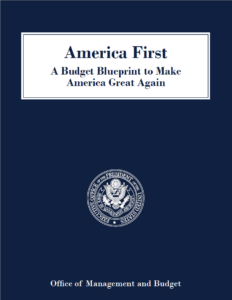 However, it’s not clear what resources would be made available to support a full reauthorization of Perkins or even maintain existing programs; on March 16, President Trump released his budget blueprint for FY 2018. The “skinny budget” – limited in detail but promising a more-comprehensive update later this spring – cuts $2.5 billion in funding from the Department of Labor and another $9 billion from the Department of Education.
However, it’s not clear what resources would be made available to support a full reauthorization of Perkins or even maintain existing programs; on March 16, President Trump released his budget blueprint for FY 2018. The “skinny budget” – limited in detail but promising a more-comprehensive update later this spring – cuts $2.5 billion in funding from the Department of Labor and another $9 billion from the Department of Education.
Though presidential budgets are not legally binding and Congress has the final say in authorization and appropriations, Trump’s blueprint would stretch existing workforce programs and threaten education resources. According to a report from Democratic staff for the House Appropriations Committee, the White House proposal would cut job training and employment services provided under the Workforce Innovation and Opportunity Act (WIOA) by 35 percent. The reductions in WIOA, which passed in 2014 with large bipartisan majorities in both houses of Congress, could threaten access to employment services for millions of Americans. On the education side, the president’s budget preserves the Pell Grant program for higher education assistance and bolsters investment in school choice programs but threatens resources for working adults and lower-income students.
There are plenty of workforce and training policy questions unanswered. Repair stations, their suppliers and industry partners must drive the debate at both ends of Pennsylvania Avenue on skills development.
Final Documents/Your Two Cents
This list includes Federal Register publications, such as final rules, Advisory Circulars and policy statements, as well as proposed rules and policies of interest to ARSA members.
Quality Time
What Determines LTL Freight Rates? 9 Things You Should Know
Less than Truckload (LTL) frei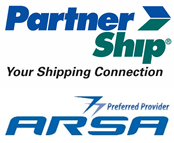 ght rates can be a bit confusing because of their variability. While truckload rates are typically calculated on a per-mile rate plus a fuel charge, there are many factors that can significantly impact the cost of your LTL shipment. We’ll cover nine factors that influence LTL freight costs one by one:
ght rates can be a bit confusing because of their variability. While truckload rates are typically calculated on a per-mile rate plus a fuel charge, there are many factors that can significantly impact the cost of your LTL shipment. We’ll cover nine factors that influence LTL freight costs one by one:
(1) Weight. The more your LTL shipment weighs, the less you pay per hundred pounds, also known as hundredweight pricing. Freight carriers will refer to a chart that lists cost per hundredweight (abbreviated as CWT, or centum weight) that contains weight breaks. As your LTL shipment weight increases, it moves into the minimum weight of the next highest weight category, which has a lower rate per CWT.
(2) Density. Density is the space a shipment occupies in relation to its weight and is determined by dividing the weight of the item (in pounds) by the volume (in cubic feet.) Freight density is a major factor in determining your shipment’s freight class. There are 18 freight classes, numbered from 50 to 500. The higher density your product is, the lower its classification (50-85). Less dense products usually have higher classifications (125-500).
(3) Freight Class. Generally, a shipment’s density, value, stowability, handling and liability are how freight class is determined by the National Motor Freight Classification (NMFC) system. Lower classes represent very dense freight that is difficult to damage and is easy to handle. These lower classes have lower LTL shipping rates per pound. Higher classes represent lighter and less dense freight that typically takes up more space. The higher the class, the higher the freight rate.
(4) Distance. As a rule, the longer distance your freight must travel, the higher the price per-hundred weight will be. Fuel costs, driver costs and equipment costs all increase with distance, as does your cost.
(5) Base Rates. All LTL carriers establish their own base rates which are quoted per 100 CWT. These are based on its volume, demand and gross costs. For example, one carrier may have a lower base rate for shipping lanes where they have a good balance between trucks and freight than another that may not.
(6) Freight All Kinds (FAK). The Freight-All-Kinds classification is a pricing arrangement that allows multiple products with different classes to be shipped and billed at the same freight class. For example, a shipper of multiple items ranging from class 50 to 100 could negotiate an FAK to rate all items at class 70, reducing costs on higher class shipments.
(7) Minimums. The absolute minimum charge (AMC) is the cost below which a carrier will not go. The costs a carrier experiences for a minimum charge shipment typically exceeds the costs they experience for larger, heavier shipments.
(8) Negotiated discounts. Third party logistics (3PL) freight brokers can often save an additional 18 to 25 percent off LTL freight rates based on the volume of business that the 3PL brings to the freight carrier. For every $10,000 in freight costs, that’s an extra $1,800 to $2,500 in savings.
(9) Accessorials. Freight accessorial charges are extra services performed by the carrier that go beyond dock-to-dock pickup and delivery. Common examples include lift gate service, residential pickup or delivery, limited access locations and inside delivery. A fuel surcharge is the most common accessorial and is typically included on every shipment.
LTL freight costs can be reduced by managing one (or more) of these factors. Working with a freight broker like PartnerShip through the ARSA Shipping Program will help you ship smarter and stay competitive by helping you to get the best LTL freight rates possible.
To get started, or to see how you can solve a challenging shipping puzzle, visit PartnerShip.com/ARSA.
Editor’s note: The views and opinions expressed by contributing authors do not necessarily state or reflect those of ARSA and shall not be used for endorsement purposes. To see more content from PartnerShip, visit blog.partnership.com.
Training
The association’s training program is provided through Obadal, Filler, MacLeod & Klein, P.L.C., the firm that manages ARSA. To go directly to OFM&K’s online training portal, visit potomaclaw.inreachce.com. To learn more about the association’s training program and see course availability, visit arsa.org/training.
On-Demand Series: Aircraft Parts
Get immediate access to Executive Director Sarah MacLeod’s three-session series on the regulations and other requirements affecting the purchase, stocking and sale of aircraft parts.
Regulations Impacting the Purchase of Aircraft Parts
The course reviews the civil aviation regulations in 14 CFR that impact the purchase of civil aviation parts, as well as other requirements that should be considered when making such purchases.
Click here to register and get 90-days of access to the recording.
Regulations Impacting the Receiving, Inspection and Stocking of Aircraft Parts
The course reviews the civil aviation regulations in 14 CFR that impact the receiving, inspecting and stocking of civil aviation articles for maintenance purposes, as well as other requirements that should be considered.
Click here to register and get 90-days of access to the recording.
Regulations Impacting the Sale of Aircraft Parts
The course reviews the civil aviation regulations in 14 CFR that impact the sale of civil aviation articles, as well as other requirements that should be considered when selling parts.
Click here to register and get 90-days of access to the recording.
Interested in all three? Click here to purchase them together and save.
Registration for an ARSA-provided training includes:
- Unlimited access for 90 days to the recording of the live session.
- A copy of the presentation and all reference material with links to relevant resources and citations.
- A certificate upon completion of the class, as well as any test material.

Regulatory Compliance Training
By ARSA Training and Regulatory Teams
Test your knowledge of 14 CFR § 43.13(a) – Performance rules (general).
Click here to download the training sheet.

Membership
Symposium 2017: ARSA Announces New Preferred Shipping Program
 On March 16, ARSA announced a new member benefit: the ARSA Shipping Program. Through an agreement with PartnerShip, association members have the opportunity to save substantial amounts of money on every freight shipment — inbound, outbound, small and large. The announcement came as maintenance industry leaders from around the world gathered in Washington, D.C. for the association’s Annual Repair Symposium and member meeting.
On March 16, ARSA announced a new member benefit: the ARSA Shipping Program. Through an agreement with PartnerShip, association members have the opportunity to save substantial amounts of money on every freight shipment — inbound, outbound, small and large. The announcement came as maintenance industry leaders from around the world gathered in Washington, D.C. for the association’s Annual Repair Symposium and member meeting.
ARSA chose PartnerShip to develop a shipping program for repair stations that combines simplicity, excellent service and savings. PartnerShip began as a successful member service organization in 1989. Today, the well-established provider works with more than 150 association groups, 17,000 businesses and many of the best carriers in the industry.
“ARSA’s overriding goal is to reduce our members’ costs of doing business and improve their efficiency,” ARSA Executive Vice President Christian A. Klein said. “In a transportation-intensive industry like ours, we think this new benefit will give members more profitable, customer-focused shipping options.”
Under the arrangement with Partnership, ARSA members will receive discounts on less-than-truckload (LTL), truckload, expedited and tradeshow freight shipping services. Specifically, ARSA members will:
- Save at least 70% on standard and guaranteed LTL freight shipments with UPS Freight, YRC Freight and other reputable carriers.
- Receive competitive pricing on truckload, expedited and international freight services.
- Save on every exhibit shipment to and from tradeshows and events, backed by an on-time guarantee.
- Benefit from specialized services including inbound management, freight bill auditing, invoice consolidation and more.
More information about the ARSA Shipping Program is at PartnerShip.com/ARSA. Interested members should call PartnerShip directly at 800-599-2902, or email sales@PartnerShip.com.
To see what else happened during the event, visit ARSA.org/symposium.
PartnerShip is a leading freight broker that helps businesses thrive by connecting them to exceptional service and simple, affordable shipping. Customers save time and money in all facets of shipping and logistics, including LTL freight, truckload, tradeshow and expedited shipping. To learn more, please visit PartnerShip.com.
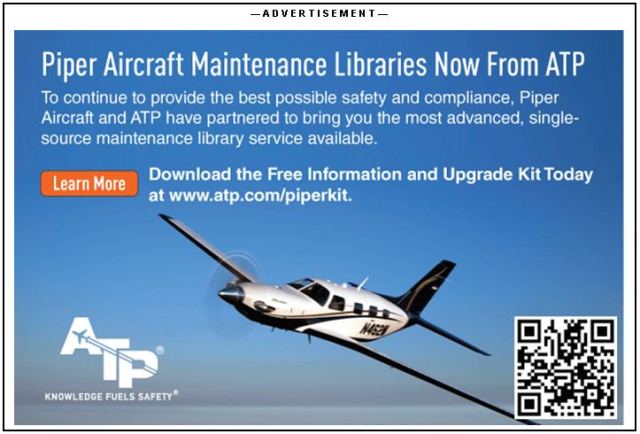
Screening Room – Finding Space for Progress
ARSA works every day to help remind the world of a simple fact: You can’t fly without us. The dedicated effort of the men and women chronicled in the association’s seven-minute public television documentary serve as a powerful reminder that aviation safety depends on mechanics and technicians around the world.
In the quest to spread the good word about aviation, aircraft maintenance, technical skill development and the spirit of exploration that first helped us take flight, the association often highlights interesting or inspiring films. This installment aims a little higher than our typical flight path:
For more information about the film, visit www.fightforspace.com.
What else are we watching? Visit arsa.org/screening-room to find out.
2017 Member Survey – Thank You
The association is grateful for the time, effort and insight of the 79 respondents to this year’s member survey. With unprecedented risk for repair stations in Washington and around the world, this participation is vital to ARSA’s work on behalf of the maintenance community.
Visit ARSA’s data and advocacy page to see how the association makes use of survey responses in conjunction with its annual economic data and other special reports.
Didn’t get a chance to respond but want to share some thoughts? Submitted a response but have thought of more to say? Click here to contact ARSA and share your thoughts.
Make ARSA’s Voice Your Own: Advertise
ARSA has a menu of advertising opportunities for arsa.org, the hotline and the ARSA Dispatch.
Take advantage of these great opportunities today to showcase your company, a new product or event. For more information go to arsa.org/advertise.
Stand Up for ARSA by Sponsoring in 2017
In order to provide world-class resources for its members, the association depends on the commitment of the aviation community. By sponsoring events and activities, supporters can help ARSA’s work on behalf of repair stations to endure.
Need a place to start? For information about opportunities, including sponsorship of the Strategic Leadership Conference in October (click here for info), contact Vice President of Communications Brett Levanto (brett.levanto@arsa.org).
A Member Asked…
Q: An air carrier requested my repair station perform work on a component and to follow revision 3 of the manufacturer’s maintenance manual. The manufacturer recently released revision 4. Revision 3 is still good (i.e., it hasn’t been AD’d out of existence). I never plan to use revision 4. Do I still need to have it available to my maintenance personnel?
A: Yes.
Section 145.109(d) generally states that repair stations must maintain the documents and data – including manufacturer maintenance manuals – necessary to perform maintenance and alterations in accordance with part 43. Under several legal interpretations, simply because the manufacturer issues a new revision does not make the previous version invalid; therefore part 43 would allow use of revision 3. Section 145.109(d), however, mandates that repair stations keep maintenance documents/data “current and accessible” when work is being performed.
In this case, this means you must have the most recent revision of the maintenance manual even though you may never use or need it. This is an instance where you can find yourself complying with part 43 but running afoul of part 145.
As to the work being performed for the airline customer, part 121 and 135 air carriers are responsible for ensuring maintenance is performed in accordance with their specific programs. Air carriers are free to elect the revision level of a particular manual or service bulletin they would like used.
Have a question for ARSA, click here to let us hear it.
Resources
ARSA strives to provide resources to educate the general public about the work of the association’s member organizations; should you need to provide a quick reference or introductory overview to the global MRO industry, please utilize AVMRO.ARSA.org.
AVMRO Industry Roundup
ARSA monitors media coverage on aviation maintenance to spread the word about the valuable role repair stations play globally by providing jobs and economic opportunities and in civic engagement. These are some of this month’s top stories highlighting the industry’s contributions.
You can explore these stories through ARSA’s Dispatch news portal.
Industry Calendar
Airline E&M: Middle East – Abu Dhabi – April 11-12
Iranian Aviation Confex 2017 – Tehran – April 17-18
MRO Americas – Orlando, Florida – April 25-27
MRO Military – Orlando, Florida – April 26-27
Civil Aircraft Industry International Forum 2017 – Shangai – May 10-11
AirCargo 2017 – Orlando, Florida – May 6
MRO Beer – Sofia, Bulgaria – May 10-11
Engine Leasing, Trading & Finance Conference – London – May 10-11
AP&M Europe – London – May 31-June 1
Previous Editions
the hotline is the monthly publication of the Aeronautical Repair Station Association (ARSA), the not-for-profit international trade association for certificated repair stations. It is for the exclusive use of ARSA members and federal employees on the ARSA mailing list. For a membership application, please call 703.739.9543 or visit http://arsa.org/membership/join/. This material is provided for educational and informational purposes only. It does not constitute legal, consulting, tax or any other type of professional advice. Law, regulations, guidance and government policies change frequently. While ARSA updates this material, we do not guarantee its accuracy. In addition, the application of this material to a particular situation is always dependent on the facts and circumstances involved. The use of this material is therefore at your own risk. All content in the hotline, except where indicated otherwise, is the property of ARSA. This content may not be reproduced, distributed or displayed, nor may derivatives or presentations be created from it in whole or in part, in any manner without the prior written consent of ARSA. ARSA grants its members a non-exclusive license to reproduce the content of the hotline. Employees of member organizations are the only parties authorized to receive a duplicate of the hotline. ARSA reserves all remaining rights and will use any means necessary to protect its intellectual property.
© 2017 Aeronautical Repair Station Association




